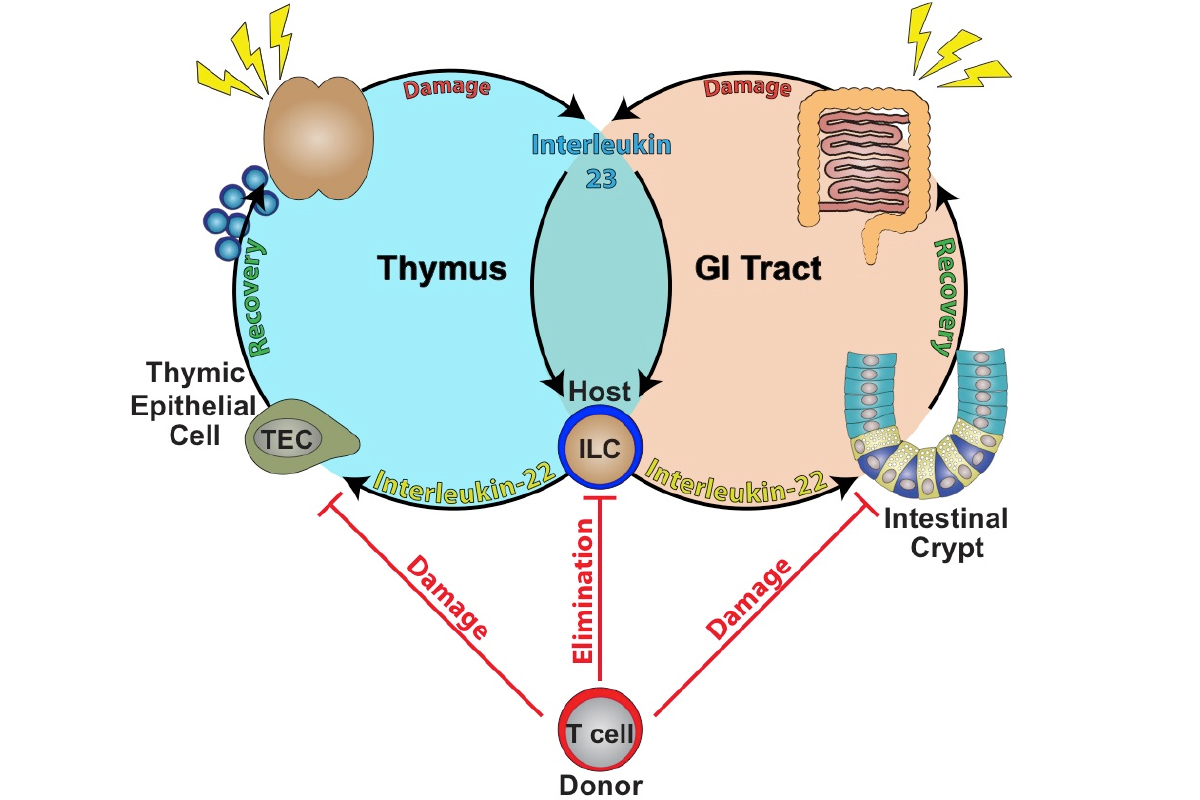Alan Hanash is an Associate Member of Memorial Sloan Kettering and an Attending Physician on the Adult Bone Marrow Transplant Service in the Department of Medicine. Dr. Hanash’s research focuses on the immunology of hematopoietic transplantation and immune-mediated mechanisms of tissue damage and regeneration.
Epithelial tissues are in a constant state of turnover. During inflammation, and especially after hematopoietic transplantation, the immune system can be activated, which can lead to damage of epithelium. The tissue damage after allogeneic transplantation mediated by donor T cells is referred to as graft-versus-host disease (GVHD). In response to this damage, innate immune cells can be activated to produce cytokines that promote epithelial regeneration.
Our work has shown that GVHD of the intestines can lead to loss of the intestinal stem cells necessary for maintaining and regenerating the intestinal epithelium. Likewise, innate lymphoid cells (ILCs) produce IL-22 post-transplant to stimulate epithelial regeneration and maintain intestinal barrier function. However, we have found that GVHD leads to loss of both the intestinal stem cells and ILCs necessary for epithelial recovery.

In addition to promoting intestinal barrier function, ILCs are critical for regenerating thymic epithelium and promoting immune reconstitution post-transplant, which is essential for maintaining antitumor and antimicrobial immunity. ILCs are thus working at the interface of the three greatest obstacles to successful allogeneic transplantation: GVHD, malignant relapse, and infections.
We are studying the processes of immune-mediated tissue damage and regeneration at the tissue level and at the level of the epithelial stem cells critical for tissue maintenance and regeneration. This work is important for understanding how to promote tissue regeneration post-transplant and treat GVHD without suppressing the immune system. It has important implications for understanding how solid tumors can develop in the setting of inflammation. Current projects in the lab include:
- ILC biology and development
- Mechanisms of tissue damage and regeneration in GVHD
- Pathophysiology of intestinal, hepatic, and thymic GVHD
- Mechanisms of malignant relapse after hematopoietic transplantation
